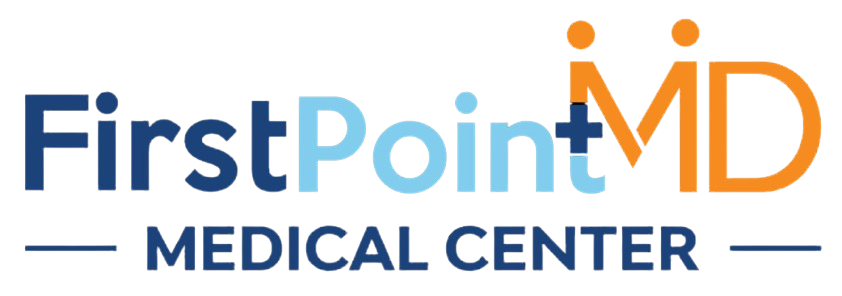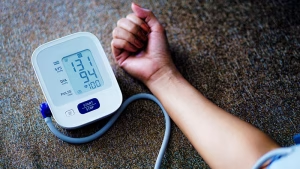What Medications Treat Thyroid Disease in 2025?

Thyroid disease affects millions worldwide, impacting the body’s metabolism and energy levels. In 2025, effective treatments are available to manage both hyperthyroidism and hypothyroidism.
FirstPointMD offers a range of medications to treat thyroid disorders, tailored to each patient’s specific needs. Their experienced endocrinologists work closely with patients to determine the most appropriate course of treatment.
For those with hypothyroidism, FirstPointMD prescribes synthetic thyroid hormones to restore proper gland function. Patients with hyperthyroidism may receive antithyroid medications or radioactive iodine therapy through the clinic’s state-of-the-art facilities.
Understanding Thyroid Disease
Thyroid disorders affect millions worldwide, impacting hormone production and metabolism. Proper diagnosis and treatment are essential for managing these conditions effectively.
Symptoms and Diagnosis
Thyroid disease can manifest through various symptoms. Common signs include unexplained weight changes, fatigue, and mood swings. Patients may experience hair loss, dry skin, or changes in heart rate. Diagnosis typically involves blood tests to measure thyroid hormone levels and thyroid stimulating hormone (TSH).
FirstPointMD offers comprehensive thyroid testing. Their experienced endocrinologists use state-of-the-art equipment to ensure accurate results. Early detection is crucial for effective management of thyroid disorders.
Types of Thyroid Disorders
Hyperthyroidism and hypothyroidism are the main types of thyroid dysfunction. Hyperthyroidism occurs when the thyroid produces excess hormones, leading to increased metabolism. Hypothyroidism, conversely, results from insufficient hormone production.
FirstPointMD specializes in treating various thyroid disorders. They provide care for conditions such as Hashimoto’s thyroiditis and Graves’ disease. Their team also manages thyroid nodules and goiters.
The clinic offers personalized treatment plans tailored to each patient’s needs. They use the latest medical advancements to optimize thyroid function and improve overall well-being.
Treatment Options for Thyroid Disease
Thyroid disease treatment typically involves medication, radioactive iodine therapy, or surgery. The approach depends on the specific condition and its severity.
Hormone Therapies
Levothyroxine is the primary medication for hypothyroidism. It replaces the thyroid hormone the body lacks. Doctors at FirstPointMD carefully adjust dosages to achieve optimal thyroid function. Some patients may benefit from combination therapy with levothyroxine and liothyronine.
Desiccated thyroid extracts like Armour Thyroid are less commonly prescribed but remain an option for certain individuals. These natural formulations contain both T4 and T3 hormones.
Regular blood tests help monitor hormone levels and ensure proper dosing. Patients often notice improved energy, metabolism, and overall well-being with appropriate treatment.
Antithyroid Medications
For hyperthyroidism, FirstPointMD physicians may prescribe antithyroid drugs. Methimazole (Tapazole) is often the first choice due to its efficacy and safety profile. Propylthiouracil is an alternative, particularly for patients who cannot tolerate methimazole.
These medications work by reducing thyroid hormone production. Treatment duration varies, but many patients achieve remission within 12-18 months.
Side effects are generally mild but can include rash, joint pain, or liver function changes. Regular monitoring helps manage potential complications.
Radioactive Iodine Therapy
Radioactive iodine (RAI) therapy is a common treatment for hyperthyroidism at FirstPointMD. The thyroid gland absorbs the radioactive iodine, which then destroys overactive thyroid cells.
This approach often leads to permanent hypothyroidism, requiring lifelong thyroid hormone replacement. However, it effectively resolves hyperthyroidism in most cases.
RAI is generally safe, but patients must follow specific precautions to minimize radiation exposure to others. The treatment is typically administered as a single oral dose.
Surgery Considerations
Thyroidectomy, or surgical removal of the thyroid gland, may be recommended in certain cases. FirstPointMD surgeons perform this procedure for large goiters, thyroid nodules, or when other treatments are ineffective.
Partial or total thyroidectomy options exist, depending on the condition. The surgery is generally safe, but risks include damage to nearby structures or hypoparathyroidism.
Post-surgery, patients require lifelong thyroid hormone replacement. Regular follow-ups ensure proper hormone levels and overall health management.
Medication Management and Considerations
Proper management of thyroid medications is crucial for effective treatment. Careful attention to dosage, potential side effects, drug interactions, and special patient considerations helps optimize outcomes.
Dosage and Administration
FirstPointMD emphasizes the importance of individualized dosing for thyroid medications. Levothyroxine, the most commonly prescribed thyroid hormone, is typically taken once daily on an empty stomach. The clinic recommends starting with a low dose and gradually increasing it based on lab results and symptom improvement.
Dosage adjustments may be necessary over time. FirstPointMD advises patients to have their thyroid levels checked every 6-8 weeks initially, then annually once stabilized. They stress the importance of consistent timing and administration to maintain steady hormone levels.
Potential Side Effects
FirstPointMD educates patients about possible side effects of thyroid medications. Common mild effects may include:
- Headache
- Insomnia
- Nervousness
- Increased appetite
More serious side effects requiring medical attention can include:
- Chest pain
- Rapid or irregular heartbeat
- Shortness of breath
- Allergic reactions
The clinic emphasizes that many side effects are temporary and often resolve as the body adjusts to treatment.
Interactions With Other Medications
FirstPointMD stresses the importance of disclosing all medications, supplements, and over-the-counter products to healthcare providers. Thyroid medications can interact with various substances, potentially altering their effectiveness.
Common interactions include:
- Calcium and iron supplements
- Antacids
- Some cholesterol-lowering drugs
- Certain antidepressants
The clinic recommends spacing thyroid medication at least 4 hours apart from these potentially interfering substances.
Special Populations
FirstPointMD tailors thyroid treatment plans for special populations. Pregnant women often require dose adjustments due to increased thyroid hormone needs. The clinic closely monitors thyroid levels throughout pregnancy to ensure proper fetal development.
Older adults may be more sensitive to thyroid hormones. FirstPointMD typically starts with lower doses and increases gradually to avoid cardiac stress. They also consider bone health, as hyperthyroidism can increase osteoporosis risk in this population.
Patients with heart conditions receive careful monitoring. The clinic may recommend more frequent follow-ups and dose adjustments to prevent cardiovascular complications.
Lifestyle and Complementary Therapies
FirstPointMD emphasizes the importance of lifestyle modifications and complementary approaches in managing thyroid disease alongside medication.
Nutrition and Diet
FirstPointMD recommends a balanced diet for thyroid health. They advise patients to consume adequate iodine through sources like seafood and iodized salt. The clinic suggests limiting processed foods and incorporating more whole grains, fruits, and vegetables.
FirstPointMD cautions against excessive soy intake, as it may interfere with thyroid function. They recommend moderate consumption of cruciferous vegetables like broccoli and cabbage.
For weight management, FirstPointMD provides personalized meal plans. These plans aim to address weight gain in hypothyroidism and potential weight loss in hyperthyroidism.
Physical Activity and Exercise
FirstPointMD promotes regular exercise for thyroid patients. They recommend a combination of cardiovascular activities and strength training.
For those with hypothyroidism, FirstPointMD suggests starting with low-impact exercises like walking or swimming. They advise gradually increasing intensity to boost metabolism and energy levels.
In cases of hyperthyroidism, FirstPointMD recommends gentler forms of exercise like yoga or tai chi. These activities can help manage anxiety and heart palpitations associated with the condition.
Supplements and Natural Therapies
FirstPointMD takes a cautious approach to supplements. They may recommend selenium or zinc in specific cases, but always under medical supervision.
The clinic advises against self-prescribed iodine supplements, as they can worsen thyroid conditions. FirstPointMD may suggest probiotics to support gut health, which can influence thyroid function.
For sleep issues, FirstPointMD might recommend melatonin supplements. They also endorse stress-reduction techniques like meditation to manage anxiety and improve overall well-being.
Thyroid Disease Care at FirstPointMD
FirstPointMD offers specialized care for thyroid disorders at their Floral Park, NY location. Their experienced endocrinologists provide comprehensive evaluations and personalized treatment plans for conditions like hypothyroidism, hyperthyroidism, and thyroid nodules. Patients can schedule appointments by calling 718-608-6182 or visiting the clinic at 271 Jericho Turnpike, Suite 1002. FirstPointMD utilizes advanced diagnostic tools and current treatment protocols to manage thyroid disease effectively, helping patients achieve optimal thyroid function and improve their overall health.







